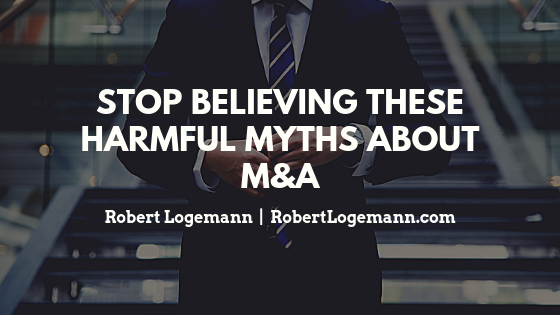Given that mergers and acquisitions (M&A) are both layered and prone to constant change, it is not surprising that they have become the subject of numerous misconceptions over the years. Still, this notion is far from an excuse within the general business and finance communities, and if allowed to persist, it can lead to further confusion down the line, which itself can be detrimental to corporate functionality as it falls victim to a vicious cycle of ignorance and mishandling.
Here are several harmful M&A myths, debunked.
Myth: It is a waste of time to seek out buyers; you should wait for them to contact you
Business owners dabbling in M&A should never rest on their laurels from a sales perspective. It is crucial for these individuals to proactively seek out interested or well-suited buyers to create the best opportunity possible. Succumbing to laziness — or forgoing the process entirely — can lead to a scenario where the business is sold to a poor fit due to a lack of proper communication and research — not to mention an adverse impact on stakeholders, employees, and customers alike.
Myth: All offers are indicative of appropriate funds
Just because one says they are fully capable of executing an M&A deal does not mean they are financially prepared for one. A big part of the M&A process is establishing a culture of trust and mutual understanding, and this can be tricky with unsolicited offers where it is harder to determine the credibility of the potential buyer. Still, as covered in the previous section, businesses must invest proper effort in knowing the other involved party; otherwise, they may risk working with an entity that rushes into a deal only to reveal a lack of capital needed to see matters through.
Myth: Smaller companies are less likely to be noticed
Smaller companies have been conditioned into an inferiority complex in a variety of ways, but M&A scenarios rank near the top of this list in terms of perceived incompatibility. That said, M&A culture has fortunately shifted in recent years to favor an increasing amount of smaller deals, leading to a spike in such transactions. For small businesses unsure of their M&A viability, the best starting point is to simply engage different acquirers to assess their interest (rather than assuming they are not interested to begin with). Generally speaking, remember that, while size can be a key factor in certain M&A deals, it is no longer an end all/be all across all situations.
Myth: You must sell your entire business in an M&A transaction
Somewhere down the line, a faction of new M&A professionals began to assume such deals are cut and dry across the board — in that acquirers are either interested in 100 percent of a business or nothing at all. While the majority of M&A scenarios are, in fact, still structured this way, the reality is that many others are not. There now exists a growing community of acquirers focused on settling for minor ownership positions, and for their counterparts, there are a variety of options that can be utilized as a result of selling a minor stake; these include gaining the capital required to buy out a partner, making a separate acquisition, or taking a dividend, among other avenues.




